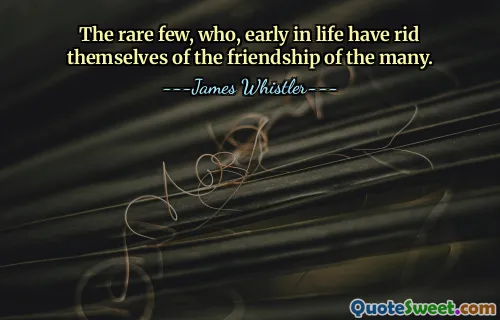Ah, they said. Qué bueno. And after and for a long time to come he'd have reason to evoke the recollection of those smiles and to reflect upon the good will which provoked them for it had power to protect and to confer honor and to strengthen resolve and it had power to hear men and to bring them to safety long after all other resources were exhausted.
In Cormac McCarthy's "All the Pretty Horses," a moment of recognition and approval is captured as characters exchange smiles, marking a significant emotional connection. This simple yet profound interaction symbolizes good will, which serves as a source of strength and resolve for the protagonist. The memory of these smiles becomes a source of comfort, echoing in the protagonist's mind long after the moment has passed.
The recollection of these smiles carries a deeper significance, as it embodies the power of human connection and compassion. It highlights the ability of kindness to provide protection and honor, allowing individuals to navigate through challenges. Even when faced with adversity, the good will depicted in this moment has the capacity to guide and support people, underscoring the enduring impact of empathy and camaraderie in difficult times.





